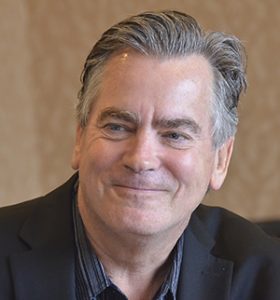ECS Treasurer | 2014–2018
 E. Jennings (EJ) Taylor is Chief Technical Officer and Intellectual Property Director at Faraday Technology Inc., an electro-chemical engineering company that he founded in 1991. His vision for Faraday was to explore the possibilities of pulse and pulse reverse electrolysis and shift the focus of electrochemical process technologies from chemical additions and often hazardous electrolytes to “electric field” control with simple, environmentally benign electrolytes.
E. Jennings (EJ) Taylor is Chief Technical Officer and Intellectual Property Director at Faraday Technology Inc., an electro-chemical engineering company that he founded in 1991. His vision for Faraday was to explore the possibilities of pulse and pulse reverse electrolysis and shift the focus of electrochemical process technologies from chemical additions and often hazardous electrolytes to “electric field” control with simple, environmentally benign electrolytes.
With contributions from a very talented Faraday staff, Dr. Taylor has collaborated on (1) electrodeposition processes for copper for electronic applications, chrome coatings, alloys for SOFC interconnects, lead-free tin solders and fuel cell catalysts; (2) electrochemical surface finishing for automotive gears, stainless steel valves and niobium superconducting radio frequency cavities, titanium and nickel aerospace engine components, and fuel cell and flow battery bipolar plates; (3) electrochemical water treatment technologies; (4) novel electrochemical cells for printed circuit boards; and (5) corrosion sensing technologies. These activities have led to approximately 120 technical papers and approximately 33 patents with numerous conference presentations and patents pending.
Dr. Taylor and his colleagues at Faraday were recognized by the National Association of Surface Finishers for contributions to the field of pulse/pulse reverse surface finishing with the 2008 Blum Scientific Achievement award. He has recently guided Faraday through a strategic acquisition and continues to serve as Chief Technical Officer at Faraday and Intellectual Property Director for the parent corporation, Physical Sciences Inc.
Dr. Taylor is passionate about innovation and Faraday’s technologies are commercialized through the process of “open innovation” whereby Faraday works closely with corporate clients to demonstrate engineering readiness and manufacturability at the bench- and pilot-scale, then transitions the manufacturing process to the client’s facility. The competitive advantage associated with the technology is typically transferred to the client via patent licensing, although Faraday has also sold eight patents.
Taylor has a BA in chemistry (1976) from Wittenberg University, and MS and PhD degrees in materials science (1981) from the University of Virginia where he studied under Glenn Stoner. His dissertation research was directed toward oxygen reduction kinetics related to fuel cells and conducted at Brookhaven National Laboratory under the direction of S. Srinivasan, W. O’Grady, J. McBreen, and G. Stoner. Subsequently, he obtained an MS in Technology Strategy and Policy (1991) from Boston University and is admitted to the U.S. Patent & Trademark Office bar (Reg. No. 53,676).
Dr. Taylor joined ECS in 1979 while a non-resident graduate student at Brookhaven National Laboratory. After receiving his PhD in 1991 from the University of Virginia, Dr. Taylor conducted battery research at the corporate R&D center for International Nickel Corp., served as Manager of Fuel Cell Research at Giner Inc., and served as Manager of Electrochemical Technologies at Physical Sciences Inc.
Dr. Taylor has served on various National Science Foundation Advisory Committees including as past Chair and current member of the Small Business Innovation Research program AdComm, member of the Engineering Directorate AdComm, and member of the Business and Operations AdComm. He also serves on several nonprofit boards including the Wright Brothers Institute, a “collaboratory” whose mission is to promote innovative solutions and commercialization related to U.S. Air Force technologies. Dr. Taylor is also committed to student education and Faraday has provided intern opportunities for undergraduate and graduate students, patent law students, and high school science and math teachers.
During his 30+ years as a member of the ECS, Dr. Taylor has served as Secretary, Treasurer, Vice-Chair, and Chair of the Boston Section of the Society. He currently chairs the Sponsorship Committee, serves on the Development Committee and is a member of the Executive Committee of the Industrial Electrolytic and Electrochemical Engineering Division. He has presented an ECS Tutorial titled “Intellectual Property for Electrochemical Scientists, Engineers, and Technologists,” and has presented an ECS “Hot Topic” breakfast briefing entitled, “The Role of Small Businesses in the Innovation Ecosystem.”

